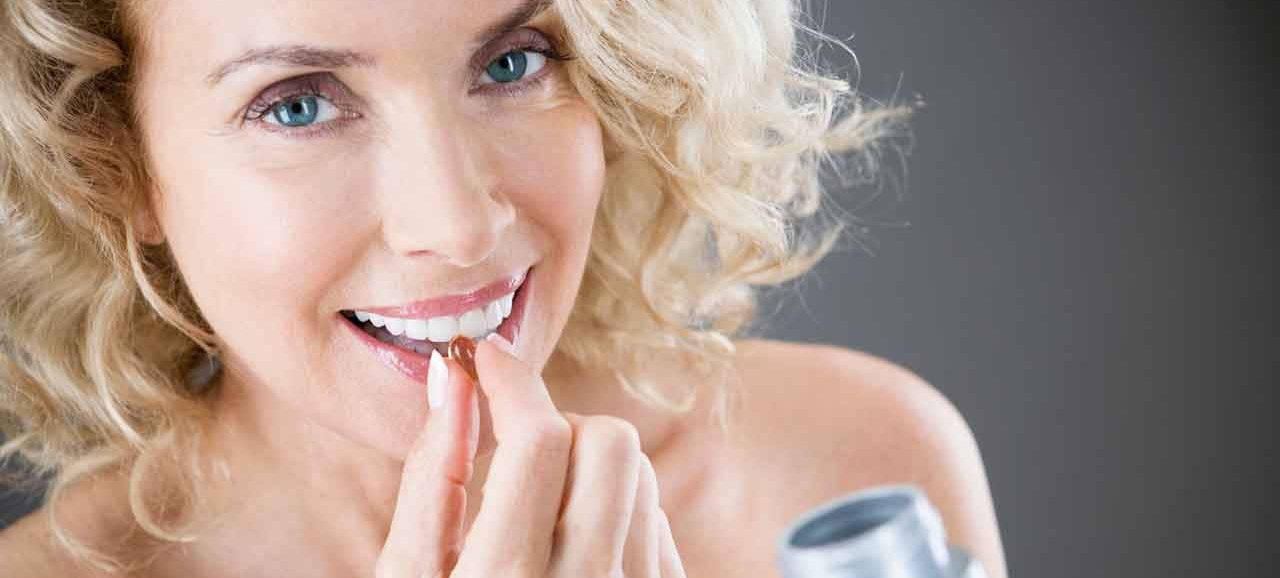Do Natural Remedies for Hot Flashes Work?

You’ll hear that eating lots of soy to fight symptoms of hot flashes will be safer than pharmaceutical hormones, but the evidence is weak.
Many plants, but especially soy beans, contain chemicals similar to estrogen, the hormone that drives the female reproductive system. When a woman stops menstruating, her estrogen levels fall, and she can suffer from hot flashes, vaginal dryness, loss of sex drive, and vulnerable bones. But taking estrogen in a pill can increase the risk of breast and uterine cancer. So you’ll hear arguments that eating lots of soy — or taking supplements containing plant estrogens — will be safer than pharmaceutical hormones, relieve symptoms, and promote your health in other ways. Some say that plant estrogens can protect you against breast cancer, diabetes, and heart disease.
YOU MIGHT ALSO LIKE: Vitamins You Need During Menopause
Don’t count on it, though increasing your consumption of soy and other foods rich in these compounds may work for you in particular. In a 2016 overview, a team of Dutch researchers concluded that there still isn’t a clear, strong case for plant estrogens — and possible risks. Your age, health, and “even the presence or absence of specific gut bacteria” may all affect how plant estrogens affect any woman.
This doesn’t mean you must steer clear of all things tofu, even if you’ve had breast cancer. As Marji McCullough, strategic director of nutritional epidemiology for the American Cancer Society, concludes: “Moderate consumption of soy foods appears safe for both breast cancer survivors and the general population, and may even lower breast cancer risk. Avoid soy supplements until more research is done.”
Natural remedies for hot flashes
You might be wondering why plants would contain anything like a hormone that affects female reproduction. Long ago, people noticed that sheep grazing in red clover fields in western Australia had fertility problems. Red clover is a rich source of estrogen. So is alfalfa. It’s possible that plant estrogens are one of nature’s ways of keeping down the number of animals before they strip a field. Does that imply eating alfalfa sprouts or soy would be bad for your daughter? Not necessarily.
Let’s look at breast cancer. The Japanese eat lots of soy, and women in Japan have lower rates of breast cancer than Americans. When they migrated and raised daughters in the United States, the girls ate less soy than their mothers had and their breast cancer rate began to match the U.S. rate. Here’s where age comes in: Eating lots of soy as a teenager, which is common in Japan, may reduce breast cancer risk later in life. Increasing the estrogen in your body when you’re older would have different consequences, although some research does link consuming plant estrogens to less risk of breast cancer in women post-menopause.
Do natural remedies for hot flashes increase your cancer risk?
It seems pretty clear that plant-estrogens don’t increase the risk of breast or uterine cancer, the fears associated with hormone replacement therapy. When the European Food Safety Authority analyzed the safety of plant-estrogen supplements for peri- and post-menopausal women, the agency concluded that they are not linked to more breast cancer (although it cautioned that they may not be safe for women who are particularly vulnerable to breast cancer). It also didn’t find a link to uterine cancer. On the other hand, your supplements may not help you. When the same agency evaluated whether soy relieves hot flashes and bone density in post-menopausal women, it found scant evidence. In 2013, the prestigious Cochrane group also found no good evidence that plant estrogens helped reduce hot flashes. Whether they help maintain bone density also continues to be controversial, but likely, another overview found.
Asians also have lower rates of heart disease, which fall more in line with American rates when they immigrate and start eating like Americans. There are reasons to think that estrogen deficiency promotes heart disease in women. However, at least one meta-analysis concluded that plant-estrogen supplements had no effect on cholesterol levels. Other research has found that consuming plant estrogens doesn’t protect women against heart disease.
Other benefits of soy
Some good news: Soy protein and flaxseed, which also contains plant estrogens, have been linked to better blood-sugar control, even in non-Asian women in menopause.
Meanwhile, what about your menopausal symptoms? Unfortunately, the Cochrane group says there’s not enough evidence to support Chinese herbs, acupuncture, or black cohosh. If you want to try consuming more estrogen, and don’t like soy, you have other choices: flaxseed, sesame seeds, split peas, pinto beans, lima beans, and alfalfa and clover sprouts. In general, eating more vegetables and whole grains will be an estrogen boost.
YOU MIGHT ALSO LIKE: Should You Take an Antibiotic for a UTI?
Updated:
February 27, 2020
Reviewed By:
Janet O’Dell, RN